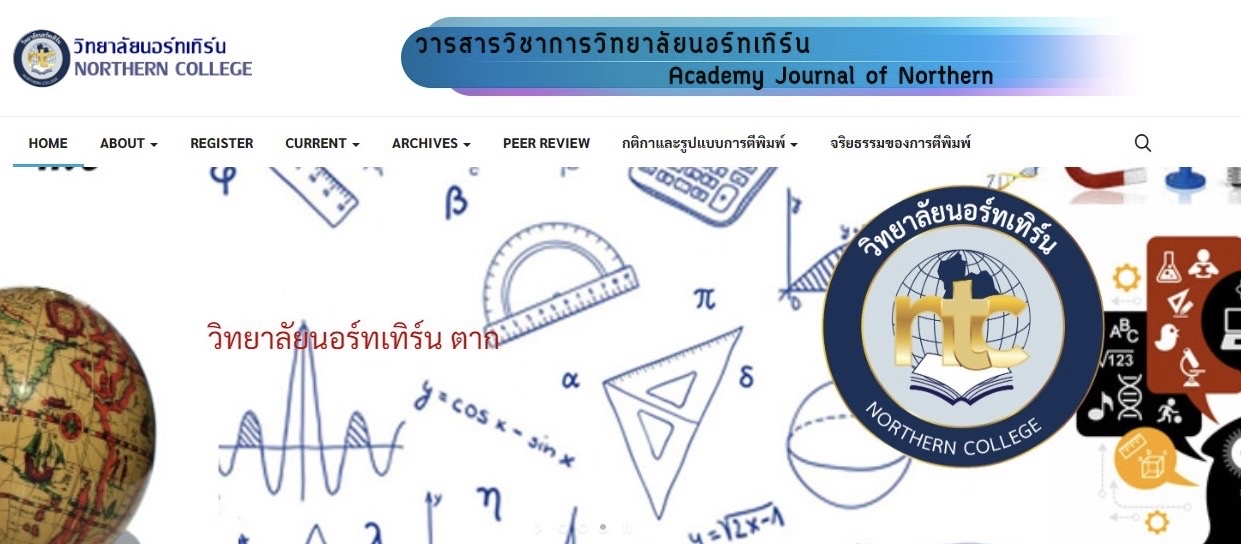Value Creation of Cultural Ecology to Tourism Management under Special Economic Zone by Partnerships of Kasa, Maepa, and Tha Sailuad Sub-districts, Mae Sot District, Tak Province
Keywords:
Value Creation, Cultural Ecology, Tourism ManagementAbstract
The research on “Value Creation of Cultural Ecology to Tourism Man agement under Special Economic Zone by Partnerships of Mae Kasa, Maep a, and Tha Sailuad Sub-districts, Mae Sot District, Tak Province” aims to stu dy the ecosystem and culture of Mae Kasa Sub-district, Maepa Sub-district and Tha Sailuad Sub-district; to study the dynamics of change and impact of the special economic area leading to the creation of tourism products of Mae Kasa Sub-district, Maepa Sub-district and Tha Sailuad Sub-district; to study capacity development of community networks in Mae Kasa Sub-dist rict, Maepa Sub-district and Tha Sailuad Sub-district in tourism managem ent and marketing and to build and connect hundreds of tourism network partners in the special economic area, Mae Sot District, Tak Province. This research uses community research methodology to develop and create eco -tourism and cultural tourism attractions. The process is a person-centered process which aims to empower people in the area with a participatory de velopment process through community-based research (CBR), the populati on and sample consisted of 1) experts, 2) operators, and 3) people with inte rests. The statistics used for data analysis were frequency, mean, percenta ge, standard deviation and content analysis. The results of the study of eco logical system and culture in Mae Kasa Sub-district, Mae Pa Subdistrict and Tha Sailuad Subdistrict, Mae Sot District, Tak Province show that the com munities in these three sub-districts are multicultural communities blendi ng Lanna and Thai Yai together. The sub-districts are border areas with na tural resources, having unique culture and distinctive identity. The locals work together to conserve the forest to be a community forest that is fertil e which consists of beautiful shady, forest caves, waterfalls and hot springs for tourists. People in the community are aware of the change in special ec onomic areas that lead to the creation of tourism products, making local p eople alert in their response to the situation that arises, showing people in the community who are fighters to find a solution. Having been discourag ed by the situations or pressures that has been overwhelming, either the urban transformation due to the development of a special economic zone, or the transformation that has occurred as a border city, coupled with the large number of people moving in and out of the area that different for bot h foreigners and tourists causing local people to always find a way out. The results of the capacity development of community networks in Mae Kasa S ub-district, Maepa Sub-district and Tha Sailuad Sub-District shows that the community has tourism management and marketing skills. People in the a rea have a systematic way of thinking, working as a team, appreciating the value of resources, cultural heritage, and identity that is "Valuable resourc e fertile forest Tai Yai and Lanna cultures the border trade city” and added value by creating tourism products by building and connecting tourism ne twork partners in the special economic area, Mae Sot District, Tak Provinc e by using what the communities have as capital for development to create added value. Find a form of community-based tourism, in collaboration wi th network partners, based on the abundance of natural and cultural reso urces and border-town charm. People in the community are ready. And th ere are network partners that support the development of community-based tourism management.
References
พจนา สวนศรี. (2546). คู่มือการจัดการท่องเที่ยวโดยชุมชน. กรุงเทพฯ : โครงการท่องเที่ยวเพื่อชีวิตและธรรมชาติ.
วลัยลักษณ์ ทรงศิริ. (2556). แนวคิดเรื่องพหุนิยม เบื้องต้น. ในรือเสาะ พหุวัฒนธรรม: ความหลากหลายและมิตรภาพจากความทรงจำของ “คนใน” บนพื้นที่สีแดง. นาญิบ
บิน อะห์หมัด. กรุงเทพฯ : มูลนิธิเล็ก-ประไพ วิริยะพันธุ์, 2556. 9-13.
กาญจนา แก้วเทพ. (2552). เอกสารสังเคราะห์วิธีวิทยางานวิจัยเพื่อท้องถิ่น. สกว.ฝ่ายวิจัยเพื่อท้องถิ่น.
ชุลีรัตน์ จันทร์เชื้อ และคณะ. (2557). การพัฒนาเครือข่ายการท่องเที่ยวโดยชุมชนเพื่อการเรียนรู้มรดกวัฒนธรรม. กรุงเทพฯ: สำนักงานกองทุนสนับสนุนการวิจัย (สกว.).
ณัฏฐินี ทองดี และแพรวโพยม พัวเจริญ. (2554). การศึกษาอัตลักษณ์และคุณค่าของมรดกทางวัฒนธรรมสู่กิจกรรมการท่องเที่ยวเชิงสร้างสรรค์สำหรับนักท่องเที่ยวเยาวชน. กรุงเทพฯ : สำนักงานกองทุนสนับสนุนการวิจัย (สกว.).
ยุวัฒน์ วุฒิเมธี. (2526). หลักการพัฒนาชุมชนและการพัฒนาชนบท. กรุงเทพฯ: ไทย-อนุเคราะห์ไทย.
นภารัตน์ กิตติรัตนมงคล. (2562).การจัดการตนเองของภาคประชาสังคมเพื่อการเข้าสู่เขตพัฒนาเขตเศรษฐกิจพิเศษจังหวัดตาก. กรุงเทพฯ.
พูนลาภ ทิพชาติโยธิน. (2553). Value-Added Activities เพิ่มลูกค้าด้วยกิจกรรมเพิ่มมูลค่า.
ผจงจิตต์ อธิคมนันทะ. (2545).การเปลี่ยนแปลงสังคมและวัฒนธรรม (พิมพ์ครั้งที่11). กรุงเทพฯ : มหาวิทยาลัยรามคำแหง.
สนธยา พลศรี. (2550). เครือข่ายการเรียนรู้ในงานพัฒนาชุมชนในงานพัฒนาชุมชน. กรุงเทพฯ : โอเดียนสโตว์.
เจษฎา นกน้อย . (2554). แนวคิดการบริหารทรัพยากรมนุษย์ร่วมสมัย. กรุงเทพฯ : พิมพ์ครั้งที่ 2.จุฬาลงกรณ์มหาวิทยาลัย.
นภาภรณ์ หะวานนท์ และคณะ. (2550) .ทฤษฎีฐานรากในเรื่องความเข้มแข็งของชุมชน. กรุงเทพฯ : สำนักงานกองทุนสนับสนุนการวิจัย (สกว.).
Downloads
Published
How to Cite
Issue
Section
License
Copyright (c) 2023 Academy Journal of Northern

This work is licensed under a Creative Commons Attribution-NonCommercial-NoDerivatives 4.0 International License.







